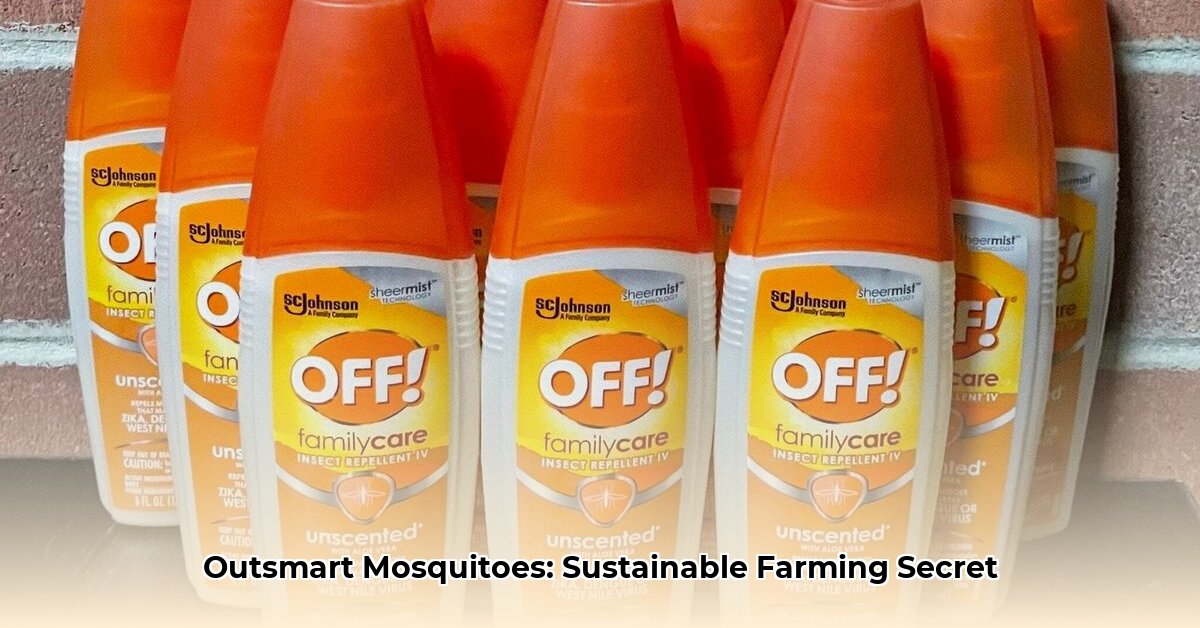
Sustainable agriculture demands responsible pest management. This guide provides a step-by-step approach to Integrated Pest Management (IPM) for controlling mosquitoes, utilizing Tractor Supply products as part of a broader, environmentally conscious strategy. We'll explore IPM principles, product selection, and practical application, empowering you to protect your crops and environment effectively. For additional pest control options, check out these helpful resources.
Understanding Integrated Pest Management (IPM)
IPM isn't just about spraying; it's a holistic approach prioritizing prevention and minimizing pesticide use. It involves a multi-pronged strategy, combining different methods to achieve long-term pest control. This approach reduces reliance on chemical pesticides, protecting beneficial insects, human health, and the environment.
Core Principles of IPM
- Monitoring: Regularly inspect crops for pest signs (e.g., damage, insects). Early detection is crucial for effective management.
- Prevention: Implement cultural practices like crop rotation, proper irrigation, and habitat modification to discourage pests.
- Biological Control: Utilize natural predators (e.g., ladybugs, lacewings) or disease-causing organisms to suppress pest populations.
- Physical Control: Employ methods like hand-picking, traps, or barriers to remove pests directly.
- Chemical Control (Last Resort): Use pesticides only when necessary, selecting targeted products with minimal environmental impact and adhering strictly to label instructions.
Choosing Your Tools: Mosquito Control Products from Tractor Supply
Tractor Supply offers various mosquito control products. However, selection should align with your IPM strategy. Prioritize products that are:
- Targeted: Effective against specific mosquito species.
- Safe: Minimal impact on beneficial insects, pollinators, and the environment. Always read the label.
- Sustainable: Consider organic or low-impact options whenever possible.
Your Step-by-Step IPM Action Plan for Mosquito Control
This actionable framework guides you through implementing an effective IPM plan:
- Identify Mosquito Species: Accurate identification guides your control strategy. Use resources like field guides or online databases.
- Monitor Mosquito Populations: Employ sticky traps, visual inspections, or mosquito traps to track population density.
- Establish Action Thresholds: Define pest population levels triggering intervention. This prevents unnecessary pesticide use.
- Implement Preventative Measures: Eliminate standing water, improve drainage, and consider planting mosquito-repelling plants.
- Employ Biological Control: Introduce beneficial insects or nematodes known to prey on mosquito larvae.
- Use Physical Control Methods: Remove mosquito breeding sites; utilize traps where appropriate.
- Chemical Control (If Necessary): Use a targeted pesticide from Tractor Supply only as a last resort, strictly following label instructions. "Dr. Emily Carter, Entomologist at the University of California, Davis, emphasizes that 'chemical control should be employed only when monitoring reveals levels exceeding established thresholds—and always after attempting other solutions.'"
Weighing the Pros and Cons of IPM
While highly beneficial, IPM requires careful planning and consistent effort. Let's examine the advantages and disadvantages:
| Pros | Cons |
|---|---|
| Reduced pesticide use | Requires more time and observation |
| Environmental protection | May not completely eliminate all pests |
| Healthier crops | Initial investment in tools/training possible |
| Long-term cost savings (potential) | Requires knowledge and careful planning |
The Ongoing Journey of IPM: A Continuous Process
IPM is an adaptive, ongoing process. Regular monitoring, adjustments based on observed results, and continuous learning are essential for long-term success. Start with a small area, refine your approach, and progressively scale your IPM program across your farm.
"Successful IPM requires commitment and adaptability," states Dr. Michael Jones, Agricultural Extension Specialist at Cornell University. "Regular monitoring and flexible adjustments based on observed results are key to long-term success."
Key Takeaways:
- Integrated Pest Management offers a sustainable path to mosquito control.
- Tractor Supply products are a valuable tool within a broader IPM strategy.
- Consistent monitoring, preventative measures, and targeted intervention are vital for success.
This guide provides a framework for sustainable mosquito management. Remember to research specific products and follow all label instructions meticulously.